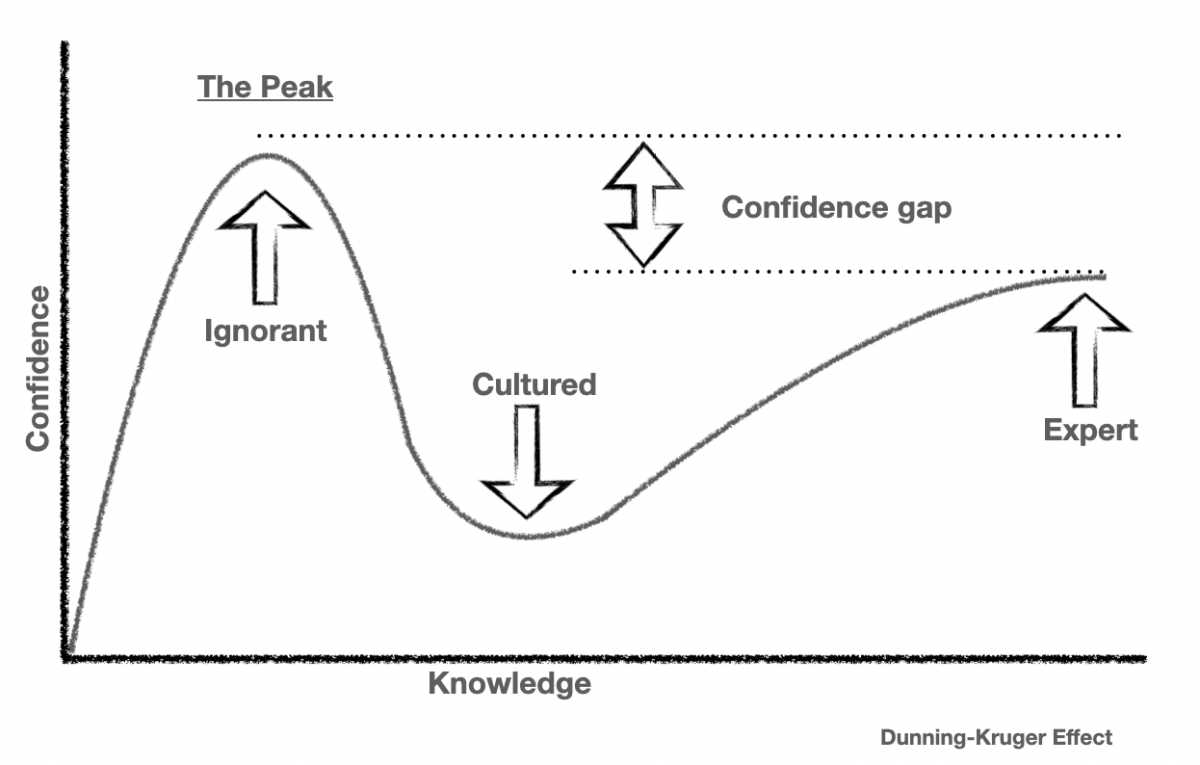Introduction
In the realm of decision-making, the human mind is prone to various biases and heuristics that can cloud our judgment. One such cognitive bias, the Dunning-Kruger Effect, sheds light on the intriguing phenomenon of individuals who possess limited knowledge or skills overestimating their abilities. This mental model, coined by psychologists David Dunning and Justin Kruger, highlights the paradoxical tendency of incompetence leading to an inflated sense of competence. In this blog post, we will explore the intricacies of the Dunning-Kruger Effect, its impact on decision-making processes, and practical strategies to avoid falling into its trap.
Understanding the Dunning-Kruger Effect
The Dunning-Kruger Effect is a cognitive bias that occurs when individuals with low ability in a particular domain mistakenly assess their competence as being much higher than it actually is. Conversely, those with high levels of competence tend to underestimate their abilities. This cognitive bias can arise due to a lack of metacognitive skills, which are crucial for accurately evaluating one’s own performance.
Relevance in Decision-Making Processes
The Dunning-Kruger Effect holds significant relevance in decision-making processes across various aspects of life. It can hinder individuals’ capacity to objectively assess their skills, knowledge, and judgment, leading to flawed decisions that can have wide-ranging consequences. Let’s examine three distinct examples that demonstrate the occurrence of the Dunning-Kruger Effect in different contexts.
Personal Life Decisions:
Consider a novice investor who has recently delved into the stock market. Lacking experience and knowledge, they may overestimate their abilities and make risky investments based on incomplete information. Their confidence may blind them to the complexities of the market, leading to substantial financial losses. In this scenario, the individual’s limited understanding of investing amplifies their misplaced confidence, creating a recipe for poor decision-making.
Business Scenarios:
In the corporate world, the Dunning-Kruger Effect can manifest when leaders fail to recognize their own limitations. A manager who lacks expertise in a particular area may assume they possess the necessary skills to make critical decisions. This overconfidence can result in misguided strategies, ineffective team management, and negative impacts on the organization’s bottom line.
Public Policy-Making:
The Dunning-Kruger Effect is not confined to personal and professional spheres but can also seep into public policy-making. When policymakers lack comprehensive knowledge or fail to consult domain experts, they may make ill-informed decisions that disregard the complexities of social, economic, or scientific issues. Such decisions can have far-reaching consequences for society, undermining public welfare and trust in governance.
Psychological Underpinnings and Biases
The Dunning-Kruger Effect is intertwined with several mental biases and cognitive limitations. One such bias is the “illusion of explanatory depth,” where individuals believe they understand a concept more deeply than they actually do. This illusion can contribute to overconfidence and an underestimation of the complexity involved. Additionally, confirmation bias, which predisposes individuals to seek and favor information that confirms their existing beliefs, can reinforce the Dunning-Kruger Effect by preventing individuals from recognizing their own incompetence.
Moreover, another factor contributing to this effect is the “imposter syndrome,” experienced by competent individuals who underestimate their abilities. These individuals may compare themselves to experts in the field and feel inadequate, thereby leading to a self-perception misalignment.
Identifying and Avoiding the Dunning-Kruger Effect
Recognizing when we might be succumbing to the Dunning-Kruger Effect is key to avoiding its pitfalls. Here are some strategies to help cultivate self-awareness and objective decision-making
Seek Feedback and Expertise: Actively seek feedback from knowledgeable individuals who can provide constructive criticism and a fresh perspective. Engage in open discussions and embrace the expertise of others to gain a more comprehensive understanding of a subject.
Embrace Continuous Learning: Cultivate a growth mindset that encourages ongoing learning and skill development. Recognize that expertise is acquired through dedication, practice, and exposure to diverse perspectives. Engaging in self-reflection and acknowledging personal limitations can facilitate growth.
Foster Metacognitive Skills: Develop metacognitive skills by learning to evaluate your own thinking processes. Regularly question your assumptions, consider alternative viewpoints, and critically reflect on your decision-making. By cultivating a habit of self-reflection, you can gain a more accurate understanding of your competence.
Be Mindful of Cognitive Biases: Familiarize yourself with common cognitive biases, such as confirmation bias and the illusion of explanatory depth. Being aware of these biases can help you approach decision-making more objectively, avoiding the pitfalls of overconfidence.
Conclusion
The Dunning-Kruger Effect serves as a reminder of the cognitive biases that influence our decision-making processes. By understanding the intricacies of this mental model, we can become more aware of our own limitations and actively work towards mitigating its effects. Recognizing the prevalence of the Dunning-Kruger Effect in personal, professional, and public contexts enables us to make more informed choices, seek expertise, and engage in continuous learning. By embracing self-awareness and maintaining a humble mindset, we can navigate the complexities of decision-making with greater clarity and prudence.
